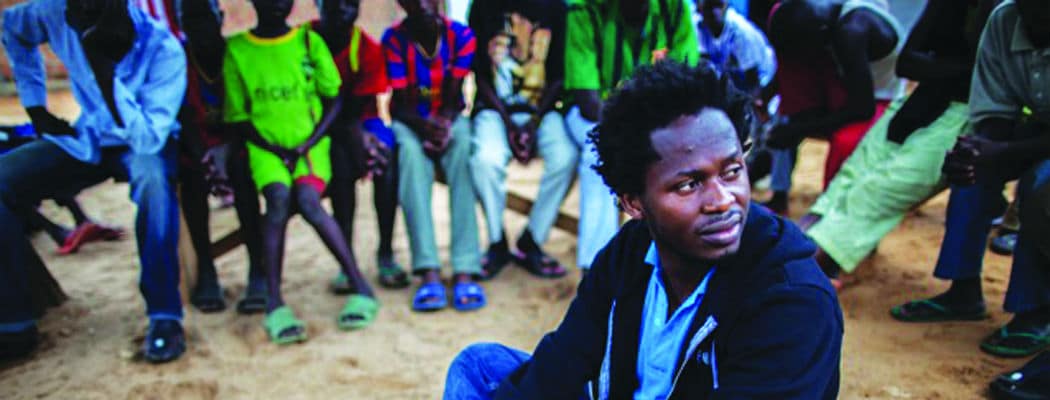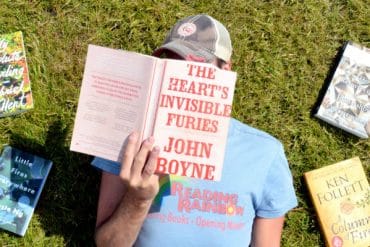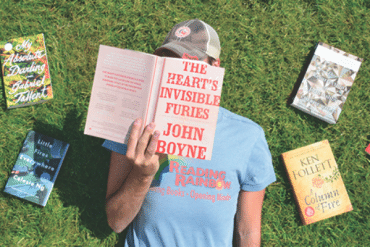How the written word transformed the life of Ishmael Beah — A journey that continues with a visit to the Nantucket Book Festival this June.
 Having fled the killing fields of war in Sierra Leone, running for a new life in a new world, Ishmael Beah discovered the importance of words — words on a page. A former child soldier in Sierra Leone, Beah was brought to America, where schools were unwilling to accept this teenage boy because he had no report card and no records. “My words were not sufficient,” Beah says. “Do you really think when someone is running from war, running for your life, you are thinking about your report card?”
Having fled the killing fields of war in Sierra Leone, running for a new life in a new world, Ishmael Beah discovered the importance of words — words on a page. A former child soldier in Sierra Leone, Beah was brought to America, where schools were unwilling to accept this teenage boy because he had no report card and no records. “My words were not sufficient,” Beah says. “Do you really think when someone is running from war, running for your life, you are thinking about your report card?”
This became the topic of his first essay, entitled “Why I Do Not Have a Report Card.” That essay — those words — propelled him into a scholarship at the United Nations International School, where he completed his high school years. “I began to realize words could become something that I could use to bring things to life,” he says. “Proof that I had existed.”
As a student at Oberlin College, scrambling for a different kind of survival, Beah submitted a short story to a writing competition for a chance to win a cash prize. Win it he did, gaining not only cash but also the attention of his professor, writer Dan Chaon, who took him under his wing and nurtured this burgeoning talent.
“We eventually became close,” Beah says. “I told him about my background, told him that I had a very difficult story to write. Very heavy, I have to warn you.” This was a story Beah hadn’t shared before. There was never enough time to explain his former life as a child soldier conscripted into service at age thirteen, having lost his mother and father and most of his family in the war. He’d been trained to do unspeakable acts, and was drugged on a daily basis to be able to perform them. For a child of war, life as a child soldier was the only safe spot, death the only alternative.
 His writing became an exploration of how one survives such horrors. From those beginnings, his first book, entitled A Long Way Gone: Memoirs of a Boy Soldier was borne. With it came the realization that he had a voice that could reflect humanity and alter the way one looked at the reverberations of war. He wrote of the commonality of humanity, of what it is to be human and what it is to survive. Beah cautions against the idea of a metric of suffering, pitting one’s pain against another’s. “When the human spirit is in pain, it is the same, whatever the grief,” he explains. “There are so many ways in which humanity suffers that there is equal value for all. Once we begin to belittle another’s suffering, we are digging a grave for everybody.”
His writing became an exploration of how one survives such horrors. From those beginnings, his first book, entitled A Long Way Gone: Memoirs of a Boy Soldier was borne. With it came the realization that he had a voice that could reflect humanity and alter the way one looked at the reverberations of war. He wrote of the commonality of humanity, of what it is to be human and what it is to survive. Beah cautions against the idea of a metric of suffering, pitting one’s pain against another’s. “When the human spirit is in pain, it is the same, whatever the grief,” he explains. “There are so many ways in which humanity suffers that there is equal value for all. Once we begin to belittle another’s suffering, we are digging a grave for everybody.”
Beah’s second book, Radiance of Tomorrow, became an exploration of how you move forward while the past is pulling you back. “I wanted to show the struggle,” Beah explains. “When people return they are no longer the same; they view the world differently.” Paraphrasing an influential writer Albert Camus he says, “The role of a writer is not to represent those who make history but rather those that suffer history.” He continues, “Over the years I have thought about it quite a lot. What gives one person the ability to survive? One thing that I had in common with others who had survived is that I had a memory of what it meant to be loved, to have a family, to have a community. I had that foundation.” Beah also had an adoptive mother, Laura Simms, who built on that foundation of family.
 Radiance of Tomorrow is a lyrical evocation of a return to a village life in which language is a way to return back home, a poetic parable of post-war life. “Mende, my mother tongue, the first language I spoke, was the way in which I invite the reader into this world, this landscape, using the oral traditions of how things are said.” Imagery becomes language, used to capture the imagination of the reader, and to make the characters come alive with words.
Radiance of Tomorrow is a lyrical evocation of a return to a village life in which language is a way to return back home, a poetic parable of post-war life. “Mende, my mother tongue, the first language I spoke, was the way in which I invite the reader into this world, this landscape, using the oral traditions of how things are said.” Imagery becomes language, used to capture the imagination of the reader, and to make the characters come alive with words.
Ishmael Beah is proof that how you tell your story, how you shape your narrative, can change the way you live in the world. In refusing to be freighted by the weight of war and of memory, Beah illuminates the shadows of life and brings us with him in his radiance of tomorrow.
Join Ishmael Beah at the Nantucket Book Festival this June as he shares his experiences with a Nantucket audience.






